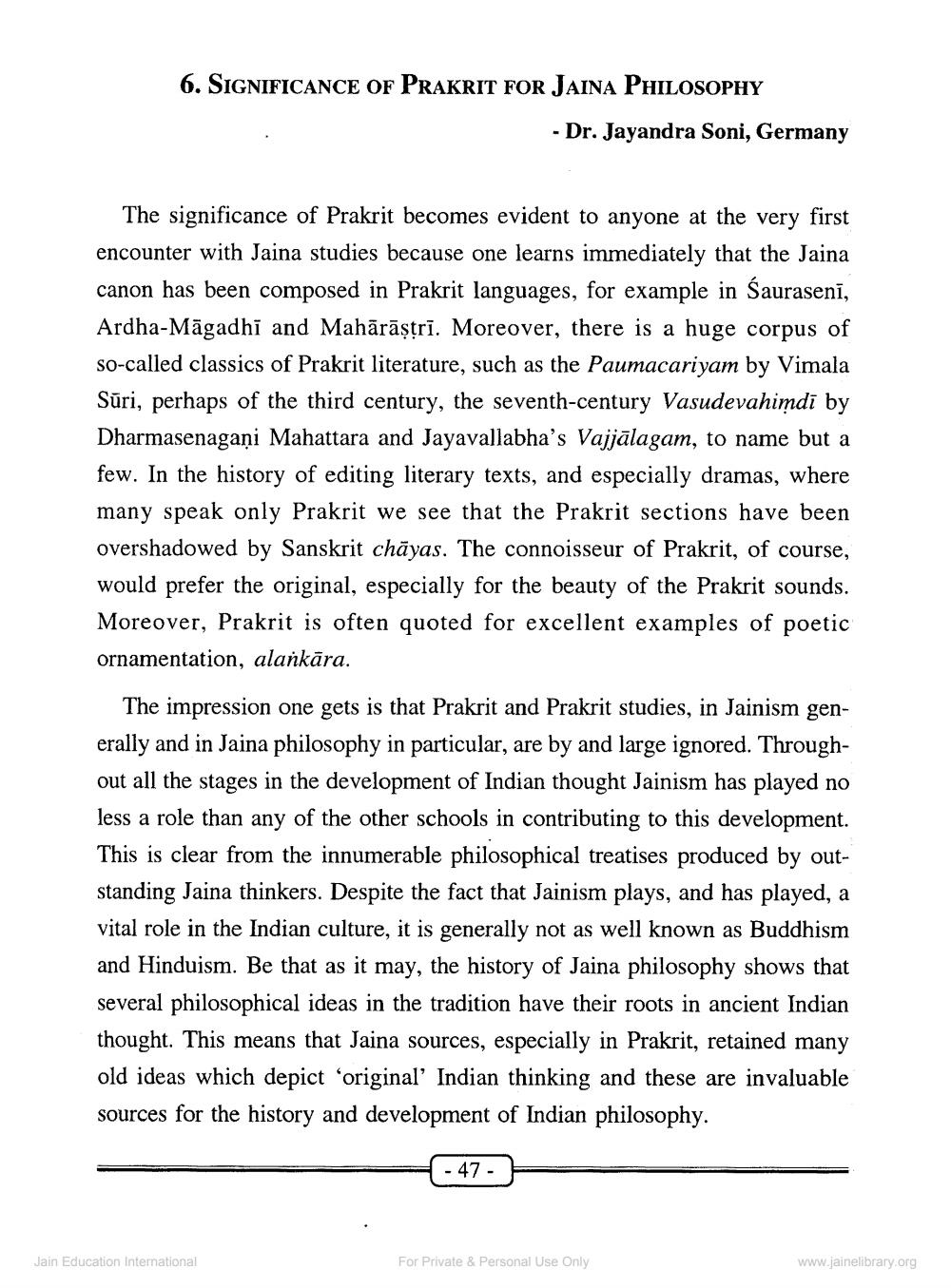________________
6. SIGNIFICANCE OF PRAKRIT FOR JAINA PHILOSOPHY
- Dr. Jayandra Soni, Germany
The significance of Prakrit becomes evident to anyone at the very first encounter with Jaina studies because one learns immediately that the Jaina canon has been composed in Prakrit languages, for example in Saurasenī, Ardha-Māgadhi and Mahārāștrī. Moreover, there is a huge corpus of so-called classics of Prakrit literature, such as the Paumacariyam by Vimala Sūri, perhaps of the third century, the seventh-century Vasudevahimdi by Dharmasenagaņi Mahattara and Jayavallabha's Vajjālagam, to name but a few. In the history of editing literary texts, and especially dramas, where many speak only Prakrit we see that the Prakrit sections have been overshadowed by Sanskrit chāyas. The connoisseur of Prakrit, of course, would prefer the original, especially for the beauty of the Prakrit sounds. Moreover, Prakrit is often quoted for excellent examples of poetic ornamentation, alańkāra.
The impression one gets is that Prakrit and Prakrit studies, in Jainism generally and in Jaina philosophy in particular, are by and large ignored. Throughout all the stages in the development of Indian thought Jainism has played no less a role than any of the other schools in contributing to this development. This is clear from the innumerable philosophical treatises produced by outstanding Jaina thinkers. Despite the fact that Jainism plays, and has played, a vital role in the Indian culture, it is generally not as well known as Buddhism and Hinduism. Be that as it may, the history of Jaina philosophy shows that several philosophical ideas in the tradition have their roots in ancient Indian thought. This means that Jaina sources, especially in Prakrit, retained many old ideas which depict 'original' Indian thinking and these are invaluable sources for the history and development of Indian philosophy.
- 47 -
Jain Education International
For Private & Personal Use Only
www.jainelibrary.org




